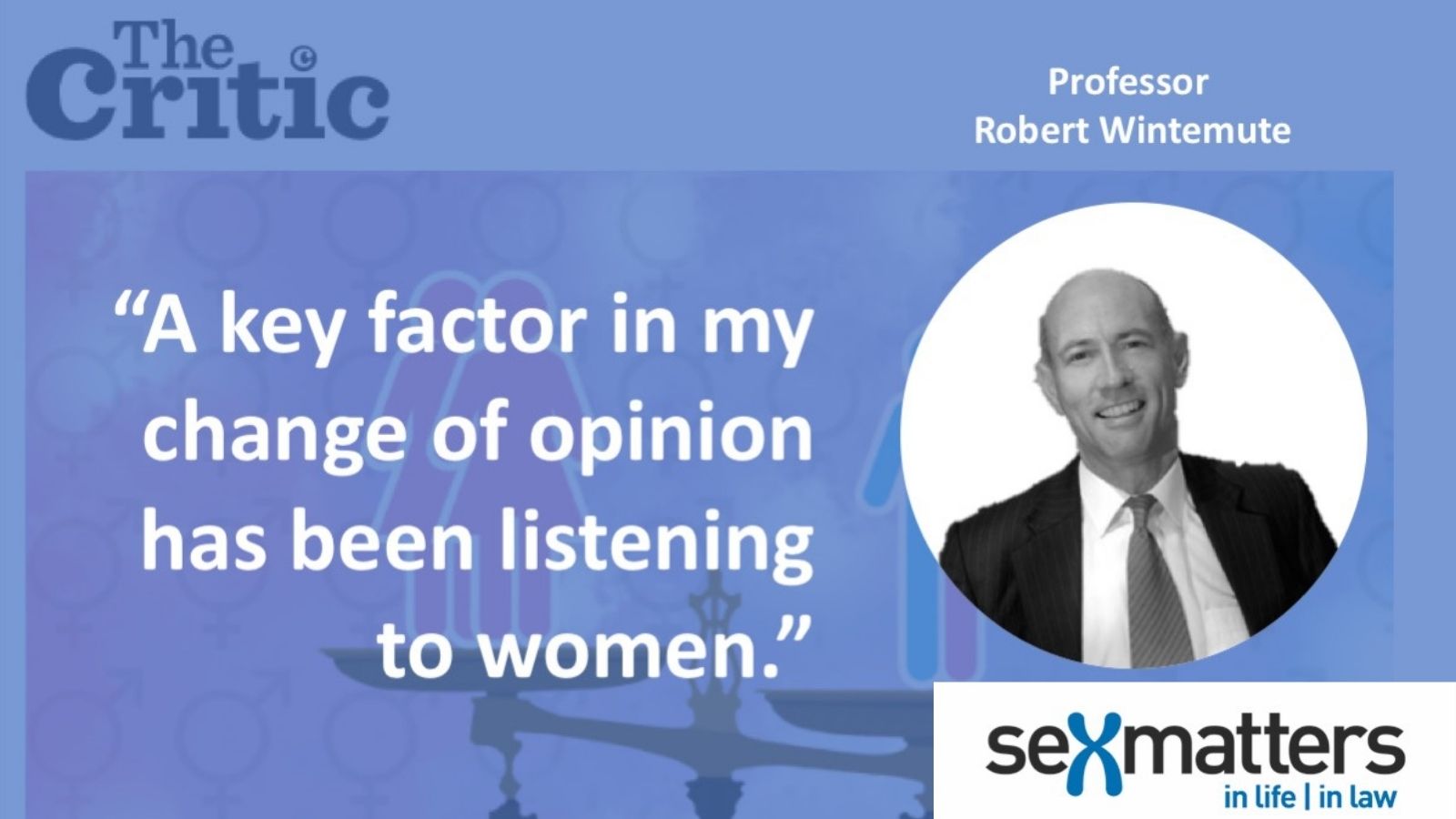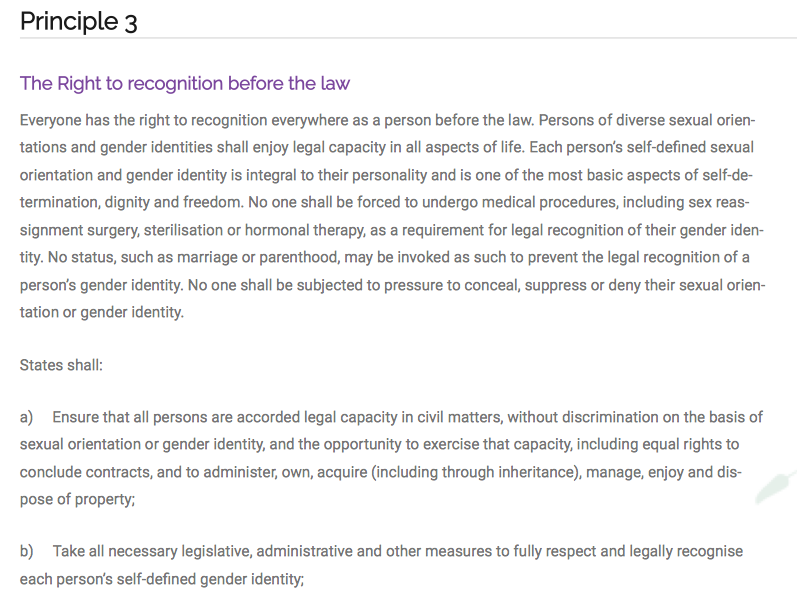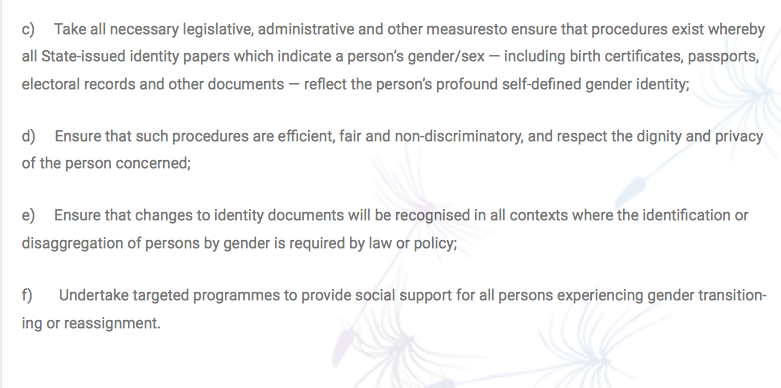The Yogyakarta Principles: women’s rights were not considered
Julie Bindel and Melanie Newman talked to Professor Robert Wintemute in The Critic.

Wintemute, Professor of Human Rights Law at Kings College London, is an expert on anti-discrimination law and sexual orientation law, and was one of the co-authors of the influential “Yogyakarta Principles”.
He now says the international human rights community got it wrong in merging lesbian and gay rights with the idea of a right to have “gender identity” replace sex.
The Yogyakarta principles, developed in 2006 built on the UK’s Gender Recognition Act, presenting it as international best practice. Principle 3 argues for a right to have gender identity replace sex on all identity documents and in all situations.


The Principles influenced other governments such as Argentina, Ireland, Denmark and Malta, and Canadian provinces to adopt self-ID. They also underpin the stance of organisations such as Amnesty International and Oxfam.
Professor Wintemute says that women’s rights were not considered during the meeting where the principles were written and the authors “failed to consider” that fully intact males would seek to access female-only spaces.
Wintemute now wonders whether the GRA should have been passed at all. Instead of changing the person’s legal sex, the law could have simply sought to protect people from violence, harassment or discrimination based on gender non-conforming appearance or behaviour.
“Birth sex is less important now, with same-sex marriage and equal state pension ages. But in my view birth sex is not an irrelevant detail and should not be automatically ‘trumped’ by gender identity in single-sex situations.”
Robert Wintemute
